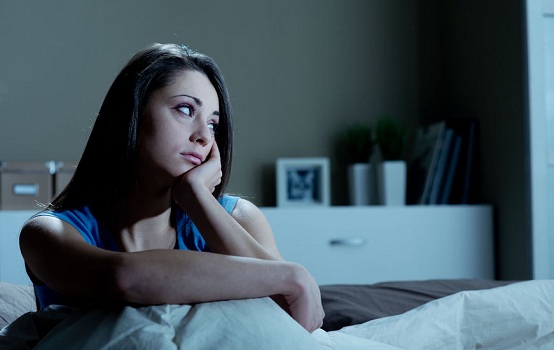Consistently getting a great night of sleep can seem impossible, especially if insomnia is refusing to give you a break. Defined as an inability to fall asleep or stay asleep and issues waking up too early, insomnia affects more than 30% of the population, with 1 in 3 people experiencing the sleep disorder at some point in their life, according to statistics from Better Sleep Better Life.
Not treating your insomnia can lead to frequent headaches, irritability, weakened immune system, back pain and more serious health conditions. Recently, the director of the Center for Sleep Medicine at Mount Sinai Hospital in New York City, Dr. Steven Feinsilver, shared some great tips with the Daily Burn to help you find the cause of your insomnia and get back on track with high-quality shut eye:
You may not biologically be a great sleeper: Some people just have the ability to turn their brains off for sleep, thanks to unique brain chemicals. Also, if you grew up without great sleep habits such as never having a consistent bedtime or routine, you not be practicing any better ones now. Cognitive behavioral therapy (CBT) is being recommended by more doctors to help retrain your brain for shut-eye.
Be aware of the “Two P’s”: If you have trouble falling asleep and staying asleep, stress may be a factor. Doctors often look for a precipitating cause, a stressful event that’s coming up and a perpetuating cause, an stressful event that has already occurred but, feeling may linger about it.
Insomnia is linked with depression: Researchers know that poor sleep and depression are associated but, it’s difficult to say which factor causes the other. Insomnia was linked with anxiety disorder, panic disorder and depression in teenagers, intensifying their conditions. Treating them both at the same time has been found to be a successful solution.
Keeping track of it can make it worse: Paying to attention to your sleep is great advice for most people but, for insomniacs consciously thinking about not falling asleep can make it harder to sleep. Do your best to ignore it and focus more on relaxation techniques such as mindfulness.
You may not want to pop pills: While medication may help you now, their effects wear off over time, which certainly won’t help you get rid of insomnia forever. Feinsilver suggests practicing great sleep hygiene throughout the day, including not taking naps, avoiding caffeine 12 hours before you bedtime and not sleeping in on the weekends.
Home remedies aren’t 100% dependable: While following home remedies such as drinking tart cherry juice, warm milk or using herbal remedies won’t hurt your sleep, they may not work for you and that’s okay. Feinsilver says that many of those remedies work due a placebo effect or they have the ability to calm you enough to fall asleep. It doesn’t hurt to give them a try!
Dealing with insomnia is never easy but, try to remain patient and always see licensed physician if sleep doesn’t seem to be doing its job. For more tips to battle insomnia, click here!


No comments yet.